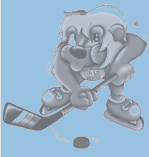HISTORY
The first hockey in Japan dates from the beginning of the twentieth century. The game was not brought to the Land of the Rising Sun by the Canadians as one might expect but rather by the English who played a few exhibition games there before quickly and quietly disappearing. Japanese enthusiasts began looking for more information and soon could not overlook Canada though – and it was the Canadians who further influenced the development of hockey in Japan. For various reasons, however, the Japanese found that they could not copy this model in the way they wanted.
The Japanese Ice Hockey Federation (JIHF) was established in 1929 and on 26 January 1930, Japan became full members of the International Ice Hockey Federation. In that same year, Japan played their first international game, at a tournament in Davos, Switzerland where they lost to England 3-0. At this tournament, the Japanese then got to test their strength against the European powers of the time.
Japan’s geographical location though came to hamper its hockey growth, making the possibility of playing the hockey elite on a regular basis difficult. Hockey developed in Japan more or less independently and without the attention of financially strong sponsors. Then in 1936, the Japanese set out for Europe for a second time where they participated in the Winter Olympic Games in Garmisch Partenkirchen. They may not have made a large impact with their performance at those Olympics but they did bring with them one innovation – their goalie, Teidži Homma, wore the first goalie’s mask seen in Europe. After this, Japan’s hockey federation always debated whether to invest their modest financial means in trips to tournaments abroad which usually ended unceremoniously or to invest the money in domestic development. But at the end of the fifties a sudden change occurred. In 1957 Japan took part in Group A of the World Championship for the first time. They were immediately relegated that year but dating from this time, they have never fallen out of contact with international hockey. The Japanese participated at the World Championship and the Olympic Games on a regular basis and they have long been best in Asia. Domestic clubs tried to bring in foreign players but without much success. But then a success came even in this area – at the beginning of the seventies, the first coaches from the Soviet Union, for instance Karpov or Staršinov, arrived. And then, e.g., the Czechs Eduard Novák and František Kaberle donned the jerseys of Japanese clubs and the popularity of hockey picked up slowly. Live television broadcasts of NHL games have also helped. The NHL has become the hockey model for Japanese fans.
Hockey in Japan experienced probably its biggest boost in 1998 when even top professionals came for the first time to an Olympics – those held in Nagano. Against most exceptions, the games played in both Nagano sports halls were sold out. The Japanese national team worked extremely hard and the fans appreciated it. The fans came out full of enthusiasm to the Women’s tournament as well where Vicky Sunohara, a player of Japanese descent dressed for Canada, one of the best teams.
At present, hockey in Japan is far from a top sport, but all involved do what they can in order to popularize it. They play exhibition games in all towns and cities and it is not an exception when a boarded rink is prepared, for instance, at the Olympic Swimming Stadium and only when one game is to be played there.

WEB PAGE
www.jihf.or.jp
STATS
You can find the results and the calendar of 2003/04 season HERE
MEDALS
The Japanese national team has never won a medal at either the World Championship or the Olympic Games.
HOW ARE THEY SEEN BY...
Jan Kruliš, the former player of Furukawa Denko: “Hockey is rather a fringe sport in Japan, baseball taking up the number one position. Japanese hockey is on a small scale and there are just a few clubs. In regards to junior hockey, the situation is worse than in other countries. Because of this, the economic backdrop is excellent for foreign players as well as for domestic players. The Japanese league has recently been seen as the most financially secure in the world after the NHL. But the Japanese do not understand hockey so much. When it comes to the point that they buy a foreign player, they let him finish a season regardless of his performance. It never happens that they would remove such a player from the line-up. The fans in Japan love going to games which are believed to be of the highest quality – when an NHL team comes there. Even though they do not know the players, they buy the team jerseys and cheer them on. Afterwards they put those jerseys into the back of their wardrobes and will never think of them again. Hockey does not really seem to suit the Japanese mentality best – since the basis of hockey is combinations and improvisation. A good sport for the Japanese is, say, the marathon where they know that they have to run hard and straight and far.”








